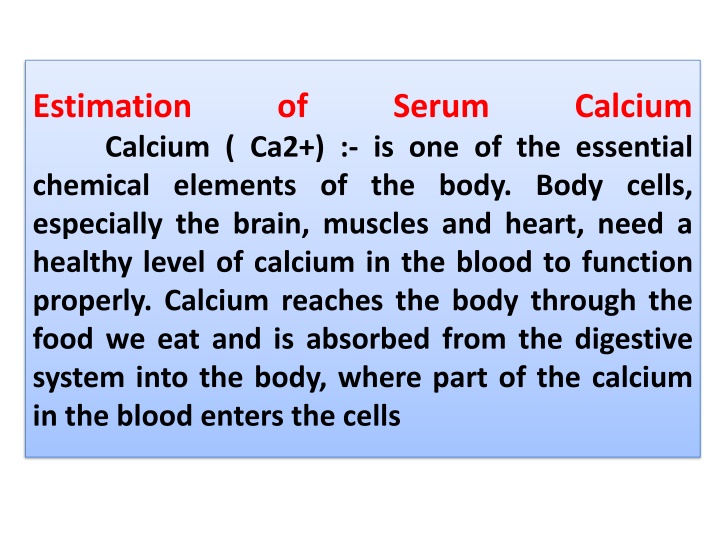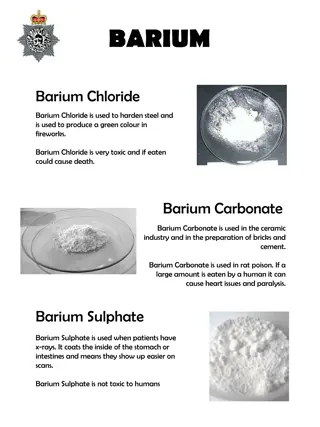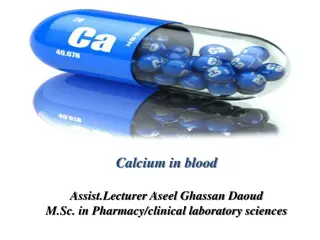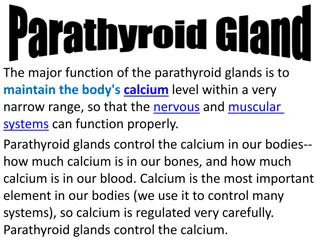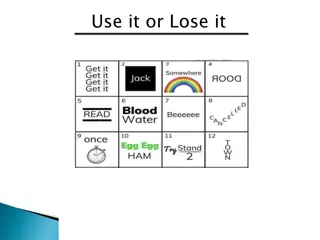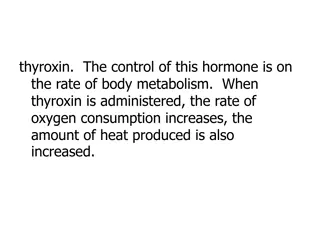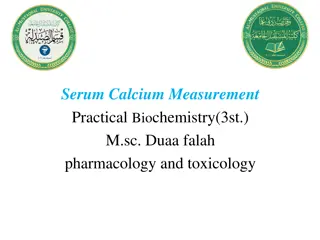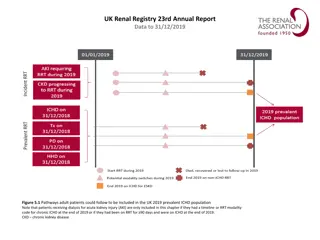Calcium Levels in the Body
Calcium is an essential chemical element for the body, crucial for the function of cells in the brain, muscles, and heart. It is stored in bones and teeth and controlled by hormones like Parathyroid Hormone. Learn about the different levels of calcium in the blood, causes of high and low levels, symptoms of imbalance, and the clinical significance of calcium in the body.
Download Presentation

Please find below an Image/Link to download the presentation.
The content on the website is provided AS IS for your information and personal use only. It may not be sold, licensed, or shared on other websites without obtaining consent from the author.If you encounter any issues during the download, it is possible that the publisher has removed the file from their server.
You are allowed to download the files provided on this website for personal or commercial use, subject to the condition that they are used lawfully. All files are the property of their respective owners.
The content on the website is provided AS IS for your information and personal use only. It may not be sold, licensed, or shared on other websites without obtaining consent from the author.
E N D
Presentation Transcript
Estimation Calcium ( Ca2+) :- is one of the essential chemical elements of the body. Body cells, especially the brain, muscles and heart, need a healthy level of calcium in the blood to function properly. Calcium reaches the body through the food we eat and is absorbed from the digestive system into the body, where part of the calcium in the blood enters the cells of Serum Calcium
Calcium is stored in the teeth and bones while excess amounts are secreted into the urine. Calcium levels are controlled by several hormones, especially Parathyroid Hormone (PTH). Almost all of your body's calcium is stored in your bones and teeth 99%. A very small amount about 1% is in your blood. Calcium in your blood comes in two forms: 1. Free calcium is not attached to anything else in you blood. 2.Bound calcium is attached to a protein called albumin
There are two levels of calcium in the blood: total calcium and ionized calcium. 50% of the total calcium in the body is linked to albumin (a blood protein), and therefore can change the level of total calcium in the blood at high or low level of albumin. There * A total calcium test measures both free and bound calcium. It's the type of blood calcium test doctors order most often. are two types of blood calcium tests: * An ionized calcium test measures only free calcium.
The roles of calcium 1. Blood Coagulation . 2. Cofactor . 3. Maintenance of normal muscle contraction . 4. Transmission of nerve impulses. Clinical Significance Causes Hyper clacium High total calcium levels can be caused by 1. Overactive parathyroid 2. Cancer 3. Staying in bed for too long 4. Too much vitamin D in your diet 5. Kidney transplant
Symptoms of Hyper calcium 1. No desire to eat 2. Constipation 3. Always tired 4. Intense thirst 5. Nausea 6. Stomach pain 7. Vomiting Causes Hypo calcium Low total calcium levels may be caused by:- 1.Low protein levels in your blood 2. Underactive parathyroid gland 3. low levels of magnesium and/or vitamin D in body 4. Pancreatitis 5. Kidney failure
Symptoms of hypo calcium 1. Irregular heartbeat 2. Muscle cramps 3. Tingling in your hands or feet 4. Muscle pain. Normal value :- 8 - 12.2 mg/dL
